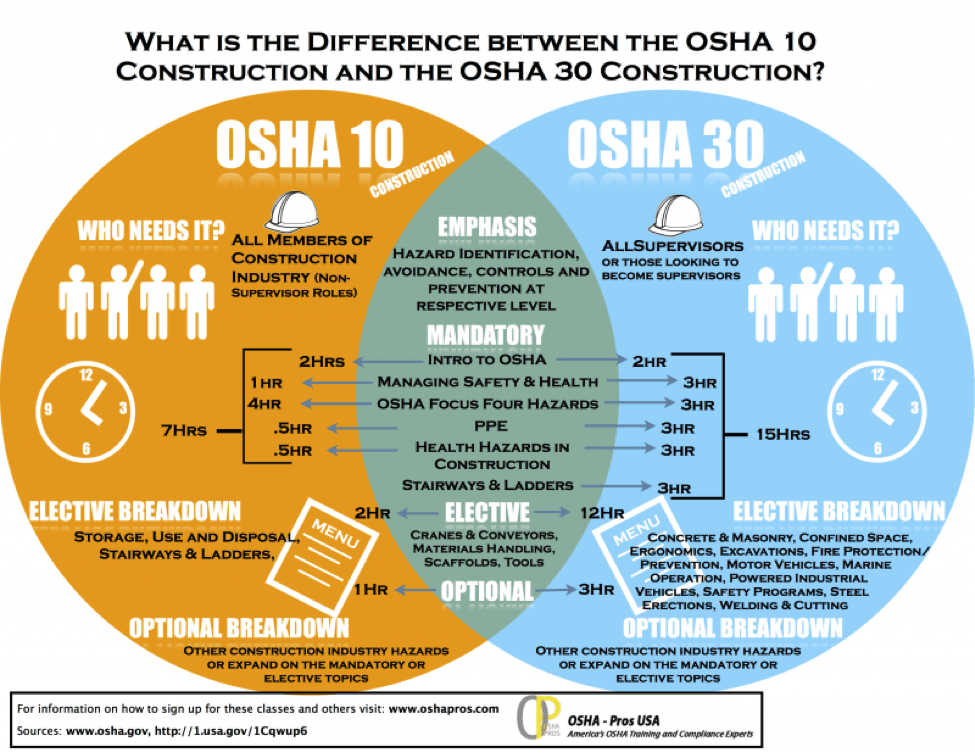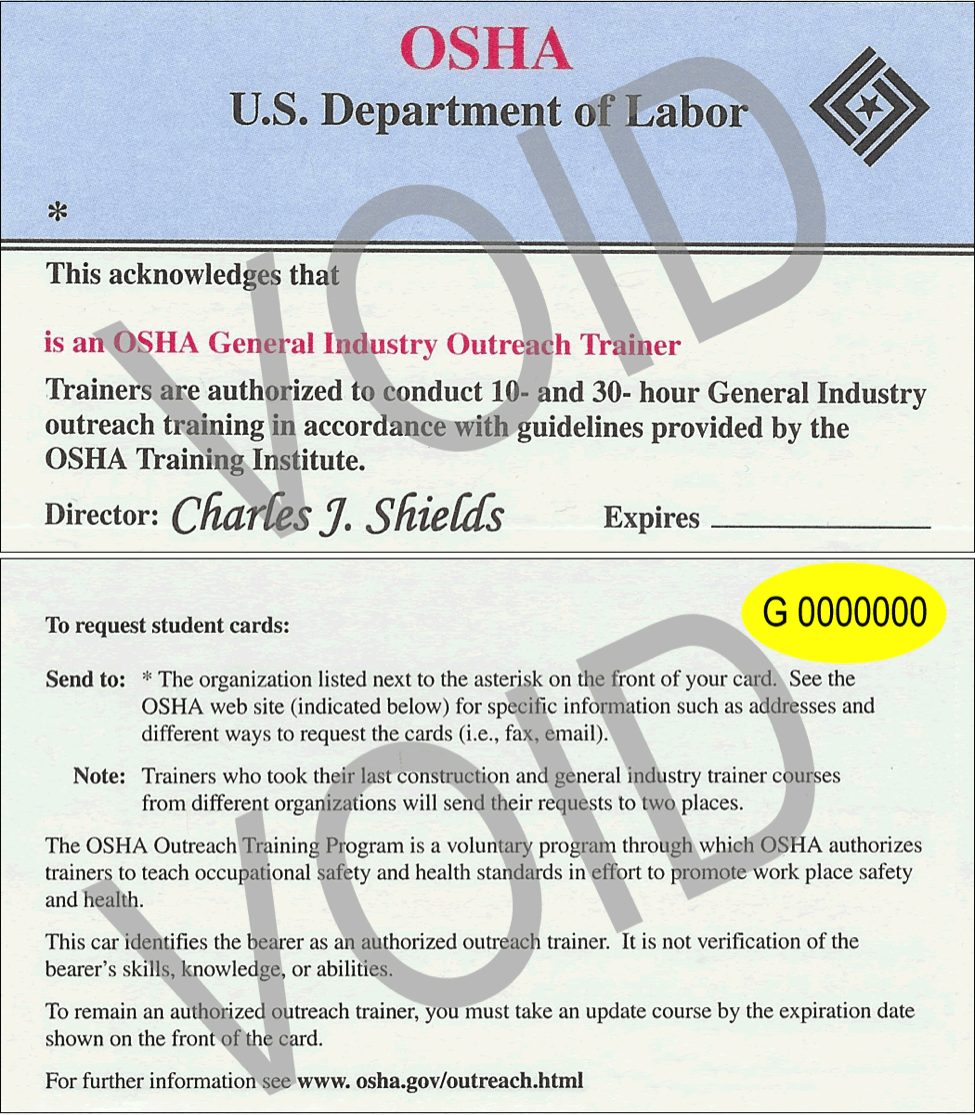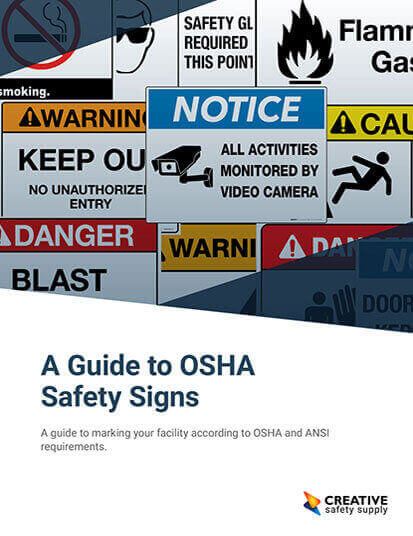
The term OSHA Card refers to a type of certification that is issued by OSHA after completing authorized training that they provide. The training is set up to help provide workers in certain areas with the knowledge they need of workplace hazards, and how to avoid them, so they can stay safe. In addition, this type of training gives employees information about their rights.
This is not a required type of training from OSHA, but one that employers are encouraged to send employees to help improve workplace safety. It is also important to know that the OSHA card certification training does not count toward other required training that is needed in certain industries.
Why Complete the Training
Since the OSHA Card is not technically a certification, some people wonder if it is worth the effort at all. Completing the training courses, and getting an OSHA Card is well worth the effort for those who work in the covered industries. Unlike official certification classes, and required training options, the OSHA Card is entirely focused on improving the safety of the workplace.
Companies that have their employees get their OSHA Card are more likely to have reduced accidents and injuries due to the increased knowledge of the workforce. Some companies make this a mandatory course for all employees, and others have it optional.
The training itself is of the highest quality and can serve as an excellent starting point for giving employees a base level of knowledge. Once they have their OSHA Card, they can receive additional company-specific training based on the exact hazards that are present in that workplace.
OSHA Training Program
OSHA offers a training program, which is named, "Outreach Training Program" for employees in a variety of industries. The training is focused on helping employees to identify and properly respond to hazards that they may encounter. The training classes come in a 10-hour option and a 30-hour option, and those who complete the classes are given their OSHA Card, which serves as proof of completion and is seen in industries as a valuable certification.
Industry Specific OSHA Card Training
The OSHA Card training programs are available for several different industries. The general concept of the training is similar across all of them, but the specifics are not. Taking courses tailored specifically for the right industry is important for getting the most benefits out of the time spent. The available training course are:
- Construction - Employees in the construction industry can benefit from this training program, which looks at the unique aspects of a construction project and how they are related to safety and health hazards.
- General Industry - As the name implies, the general industry program offers people who work in typical manufacturing, and other industrial environments the ability to identify and respond to hazards effectively.
- Maritime - This program is for those who work in the Maritime industry and offers information about the "recognition, avoidance, abatement, and prevention" of a variety of common safety and/or health hazards that exist within this industry.
- Disaster Site - The disaster site training program offers insights on the various hazards commonly found at disaster sites. This could be natural disasters, or manmade, and will be an excellent course for those who work in these areas. It covers skilled support service professionals such as demolition, debris removal, heavy equipment operation, and utility workers.
Those who want training can take any or all of the above-mentioned options, but will most benefit from that where they work. Some people who work in construction that is on or near the water may want to take both the construction and the maritime classes. There will be some overlap in what is covered, but it is better to have the extra information available if it can be used to improve safety in any way.
Attaining the OSHA Card
Anyone who completes either the OSHA 10 or OSHA 30-hour training class will attain the OSHA Card. The card will then be sent to the student in question and will serve as basic proof that they have completed the course. If further proof is required, the authorized OSHA trainer can be contacted. They are required to keep records of all the students that have completed the course for at least five years.
10 Hour Card VS 30 Hour Card
When looking to attain an OSHA Card, one of the most important decisions to make is whether the 10-hour or 30-hour training is the right option. They both offer a lot of important information that can be very beneficial, and they are both taught and approved by OSHA.
What is In the 10-Hour Card Class
The 10-hour class has training broken up as follows for the construction focused class. The other classes will have similar breakdowns, but with sections focused more on their respective industries.
- Introduction to OSHA - 2 Hours
- Managing Safety & Health - 1 Hour
- OSHA Focus Four Hazards - 4 Hours
- PPE - 30 Minutes
- Health Hazards in Construction - 30 Minutes
- Elective - 2 Hours
- Optional - 1 Hour
The elective options in the ten-hour class can be focused on cranes & conveyors, materials handling, scaffolds, and tools. The optional hour can focus on things like specific industry hazards and can provide additional coverage on other areas covered in the class.
What is In the 30-Hour Card Class
The 30-Hour class is more in-depth and provides additional information that not only identifies the common health and safety issues of an industry but also looks to identify root causes and how to address them. The following breakdown of what the class will cover is again based on the construction class, but the format applies to all the available OSHA card classes.
- Intro to OSHA - 2 Hours
- Managing Safety & Health - 3 Hours
- OSHA Focus Four Hazards - 3 Hours
- PPE - 3 Hours
- Health Hazards in Construction - 3 Hours
- Stairways & Ladders - 3 Hours
- Elective - 12 Hours
- Optional - 3 Hours
The elective options are much more varied in the 30-hour option and include concrete & masonry, confined spaces, ergonomics, excavations, fire protection/prevention, motor vehicles, marine operation, powered industrial vehicles, safety programs, steel erections, and welding & cutting. The optional training is the same as with the 10 hour class, but just more in depth.
Who Should Take Which Class

The ten hour class is designed primarily for employees and front line workers of the different industries. With a focus on how to identify and prevent hazards as they are happening, it can dramatically improve the overall safety of the facility.
The 30-hour class is designed for supervisors and managers, as well as those who want to become supervisors. It performs a deeper dive into the different topics. Attendees will also benefit from learning about how to better identify root causes of issues, and address safety hazards before they actually occur in the work environment.
The following info-graphic offers a quick and easy overview of what each type of class is, and who should take it.
Scheduling a Class
When an individual needs to take one of these classes, they will need to contact an authorized OSHA Outreach Trainer. These trainers are not OSHA employees, but are authorized to conduct the classes in different areas. The classes are often run through third party training facilities, but the trainer can also offer them independently.
Authorized training centers are also listed online from OSHA.
Becoming An Authorized Trainer

Finding an authorized trainer is typically done through a simple online search for a regional trainer. Some companies will also have one of their supervisors become an authorized trainer so that they can provide the classes to all the employees. In order to become a trainer, one must complete the OSHA Outreach Training Program. This is a one week course lets the potential trainer know how to properly teach the material.
In addition to the basic trainer courses, they will need to take an additional trainer course for each of the different topics that they will be authorized instructors for (construction, general, maritime, disaster site). Once completed, the new trainer will be given a card showing that they are an authorized trainer. The card will look like this:
OSHA Card Expiration
Once someone obtains an OSHA Card, it is good for a period of five years. After this point, they will need to go through and take the course again to keep their card active. This is important because of the fact that the standards and best practices are constantly being updated and improved over time.
Many people choose to take these courses more often than once every five years just to ensure they are always working based on the most current information out there. Even if the classes haven't changed, people can often benefit from being taught again. This is an affordable way to ensure they are working as safely as possible in the workplace, which will help to reduce accidents, injuries, and other potential issues.
Resources
Similar Articles
- OSHA 10-Hour Card [Training Requirements]
- OSHA Facts [Updated Statistics 2019]
- What is HAZCOM? (Hazard Communication Definition + OSHA Standards)
- Fall Protection in the Workplace: OSHA’s Guidelines
- OSHA Floor Marking
- OSHA Safety Sign Requirements [1910.145]
- OSHA Construction Safety
- OSHA General Duty Clause
- Safety Colors (OSHA Guidelines and Color Codes)
- OSHA Incident Rates and Formulas

